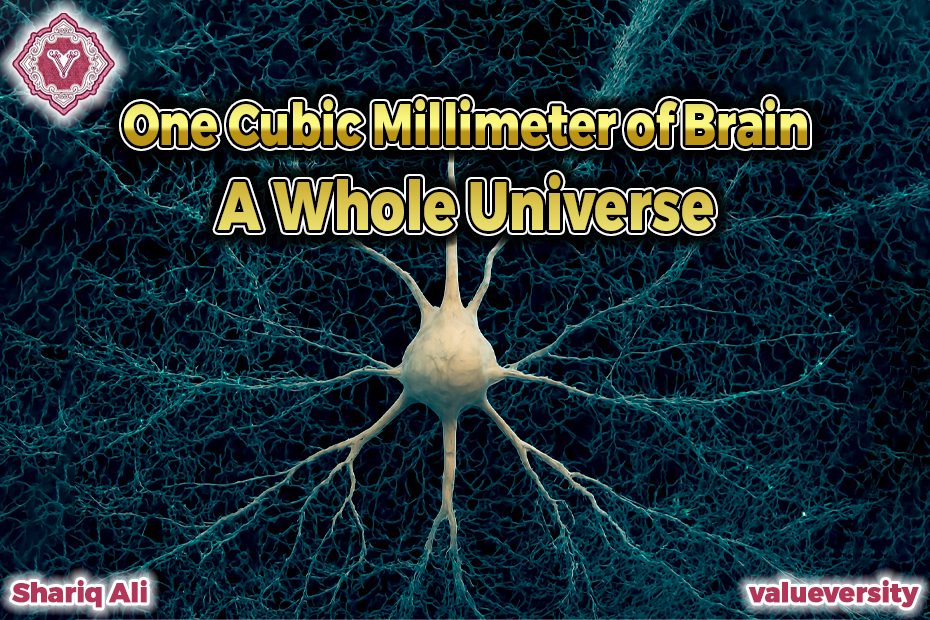One Cubic Millimeter of Brain… A Whole Universe!
Shariq Ali
Valueversity
You’ve surely seen the tip of a pin, so tiny, isn’t it?
Now imagine that just a fragment of the human brain that small , merely one cubic millimeter, holds within it an entire universe. What a mind-blowing idea!
Recently, scientists have mapped this “tiny cosmic fragment” in such intricate detail that it unveils, for the first time, the astonishing complexity of the human brain before our eyes.
This extraordinary research is the result of a joint effort by Harvard University and Google Research, led by neuroscientists Dr. Jeff Lichtman and Dr. Viren Jain. They analyzed, with extraordinary precision, a mere cubic millimeter of brain tissue obtained from a 45-year-old woman during epilepsy treatment.
This tiny section was sliced into 5,000 ultra-thin layers, and each layer was imaged using an electron microscope.
Google’s AI-powered algorithms stitched together these thousands of images to create a three-dimensional (3D) map that revealed:
57,000 brain cells (neurons)
150 million connections (synapses) between neurons
230 millimeters of blood vessels
And countless hidden pathways and signals — now visible for the first time.
The most astonishing fact: the data extracted from this tiny piece of brain amounts to 1.4 petabytes — that’s 1.4 million gigabytes! Equivalent to the storage required for 14,000 full-length 4K movies. In other words, even a speck of brain tissue can hold more information than an entire digital library.
And the most promising aspect? The entire dataset of this research has been made freely available online to the public, allowing students, researchers, and curious minds to explore this ‘universe’ of the human brain.
This is not just a scientific achievement, it marks the beginning of a new journey in human understanding and consciousness.
This research reminds us how incredibly complex we are and that the journey of self-discovery is far from over. There’s still so much more to learn.
